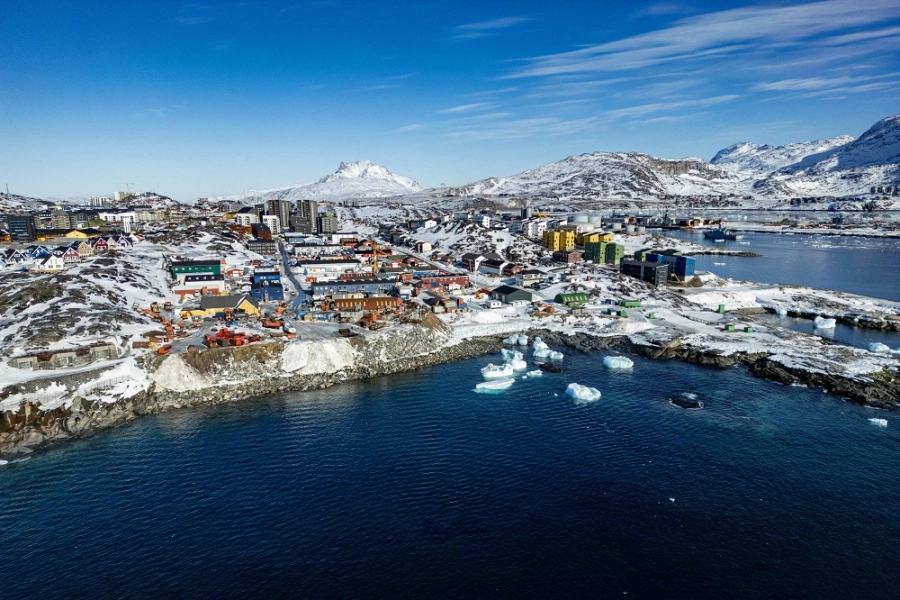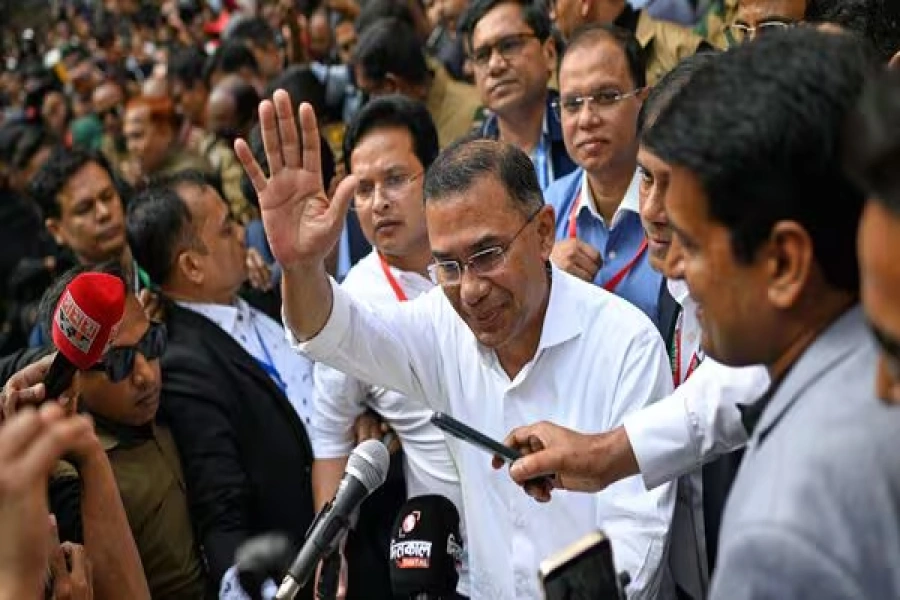I recently had another chance to sit in a ten-day noble silence and full-time meditation session at the Vipassana Center. The word "Vipassana" means "insight," that is, the aptitude to see things in their true perspective. Vipassana, an ancient meditation technique that is free from dogma, touches the root of breath and depth of being human. The Five Precepts—not killing any living being, not stealing, not engaging in sexual misconduct, not lying, and not using intoxicants—are the foundation of Vipassana meditation, which is believed to help everyone refrain from harmful inclinations. Vipassana is universally acknowledged as the only method of meditation that precisely reflects the language and technique that Buddhism has conveyed since its inception 25 hundred years ago. Vipassana holds the crux of Buddhism, while it is not perceived as an organized religion.
On May 12, the world celebrated “Buddhist Festival” on the very occasion of Gautam Buddha's 2569th birthday, also known as “Buddha Jayanti”, to honor his contributions to bringing about world peace. Lumbini, the birth place of Buddha, observed the 4th Asian Buddhist Cultural Festival, also called as an international seminar on “Nepal-China Buddhist Culture and Art” a few weeks back. The conference reportedly facilitated scholarly dialogue to preserve and innovate Buddhist cultural heritage between Nepal and China. Lumbini-Buddhism connection is considered as one of the instrumental soft powers of Nepal that help advance Nepal’s bilateral relations with several countries, including China. The festival would promote Asian Buddhist culture and heritage through Buddhism, art, literature, history, research, and dialogue, sending a positive message towards establishing world peace, highlighted Prime Minister KP Sharma Oli in his opening remarks.
In the face of persistent global conflict, war, crime, and terrorism, humanity has been under a grave threat. With the terrible tragedies that human civilization is currently experiencing, the prospect of peace has become more than urgent. The situation of human rights is under grave threat due to the “trump effect” around the world, asserts Amnesty International report. While some states are aligning for war and non-state actors are integrating for crime and terrorism, the concept of an “Alliance for Peace” proposed by the United Nations Alliance for Civilizations (UNAOC) has been a significant initiative.
Tariff-Terror and Terrorism
While President Trump’s unilateral and coercive tariff war is disrupting the economic order globally, the terrorist groups are flexing their existence to defy peaceful world order. Indian-administered Kashmir witnessed a terrible terrorist attack that killed more than two dozen innocent people last week. After the 2019 Sri Lanka attack followed by the 2016 attack in Bangladesh, this attack in Kashmir is, perhaps, the deadliest one. In all those attacks, the terrorists are threatening global nationals and the economy through the land of underdeveloped and developing nations, which must be taken as a signaling threat not only to India, China or the region, but also to the world.
Desperate search for missing girls as nearly 80 dead in Texas f...

The terrorist group could have attempted to draw global attention at a time when the US vice president was visiting India, argue the security experts. This could further be an attempt to make the world realize that they are also one of the active-actors in the perplexing international world (dis)order. While a Pakistan-based terrorist group reportedly has claimed responsibility for the attack, the local security officials, however, have blamed the separatist group within the state. Following this incident, India-Pakistan relations have been at their lowest ever in history. Both arch-rivals have cut off diplomatic and socio-economic relations and have progressed to missile attack or counter-attack, which killed several people. While India has taken the hardest stance against Pakistan, the latter has retaliated as part of the “tit for tat” slant, denying the connection to the terrorist group or act. However, the terrorist act, whether it be carried out by the states or non-states actors, must be condemned.
The crucial concern in the region and beyond is whether the current conflict between the two arch-rivals could escalate to nuclear war. Amid the extraordinary rise of Asian powers, both the state and non-state actors, including the major powers, could have aimed to destabilize the region. Following ISIS's constant terrorization of the Middle East and the West, South Asia is in a persistent focus by the terrorist organization, possibly to destabilize the most vibrant region on earth.
The democratization of technology, economic liberalization, globalization of markets, universalization of educational systems, advancement in ICT, and the development of multicultural society have changed the perceptions of threat. By uniting into cruel-cohesive groups, terrorist organizations are expanding their influence and gradually moving to every part of the world.
Armed with cutting-edge technology, terrorist groups are said to be recruiting highly qualified individuals, ranging from engineers to scientists, ICT technocrats to GPS specialists, planners to executives, and even 3-year-old infants to 70-year-old retired veterans.What if they could acquire chemical, biological, Weapons of Mass Destruction (WMD), or nuclear weapons? While Joseph Nye asserted that “Democratization of technology is leading to the privatization of war”, one of the bitter experiences is the 9/11 attack in the US, where non-state actors threatened the most powerful state in the world.
After the 9/11 attacks, China and Russia adopted "the diplomacy of sympathy," while the United States pursued "the diplomacy of aggression" in Iraq, which continues to be the country's worst foreign policy failure ever, blaming the critics. The invasion of Iraq then created room for the rise of other terrorist organizations, such as ISIS, which has continued to be costlier for the world to this day.
Nepal needs better intelligence beforehand about whether terrorists could take advantage of Nepalese kind gestures. The vast majority of South Asian nations have some sort of connection to the Middle East, particularly the Gulf region, due to the large number of migrant workers. The open border between Nepal and India, as well as the rapidly growing number of emigrants in the region influenced by ISIS, should be taken seriously. South Asia, including India and Nepal, is home to millions of emigrant populations. What if ISIS were able to sway and coerce these innocent individuals, as Bin Laden did to Mohamed Atta and others, to accomplish the inhumane success of 9/11?
The Spirit of Peace
It is very welcome and wise that the two sibling nations, India and Pakistan, have decided to make a move to ceasefire after a few days of missile strikes and counter-strikes. India in particular may benefit from this decision as it positions itself as a responsible global power. China’s prompt condemning of the recent Kashmir attack reflects a soft tone towards India. China and India, in recent years, have stepped ahead to mend ties. While India aims to be the fifth permanent member of the UN Security Council, India’s rational move followed by China’s sympathetic tone towards India would be meaningful.
Unlike ruthless competition for war in the past, the powerful countries today are competing for peace. This is a very sensible and responsible move taken by the great powers, which must be applauded. At a time when President Trump claimed diplomatic success in ending the India-Pakistan conflict, President Xi perhaps could have pushed President Putin to call for a direct talk with Ukraine such that he could shoulder the credit for ending the Russia-Ukraine war. Earlier, China garnered huge credit in bringing peace and harmony to the Arab world. In any case, the US-China competition in peace is expected to lead to a stable and peaceful world order.
The way China and India are mending their ties and advancing bilateral relations, the similar way Pakistan and India can gradually turn rivalry into normalization. The two brotherly nations can turn the “long chain of distrust” into expectant trust despite bitter history. This could be a wise idea for both the nuclear neighbors. Both the nations would remain unstable and susceptible until they stabilize the current conflictual situation. Until India-China or India-Pakistan relations in all aspects—economic, diplomatic and bilateral relations—get smooth and harmonious, the security architecture of the region remains vulnerable. The more vulnerable the security situation in the region, the higher the terrorist group and international powers, including political predators get greater space to play and weaken the rising powers and destabilize the region.
The developed world is equally vulnerable as the rest of the world due to constant war, crime, and terrorism. While President Trump has constantly vowed to bring peace to the existing war-prone regions, the united spirit of peace is highly essential. Week after the US Secretary of State threatened to walk away from the Russia-Ukraine peace deal, the US reportedly signed a mineral deal with Ukraine. The crucial concern, however, is whether this deal could bring “real” peace in Ukraine or only a massive fungible source of income to the US.
(The second part of this article will appear next week.)






































